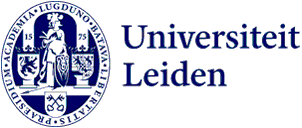Lecture | Peace Histories Seminar Series
Building Epistemic Justice After Nuclear Weapons Testing: The Case of Kiritimati
- Date
- Tuesday 9 September 2025
- Time
- Serie
- Peace Histories Seminar Series 2025-2026
- Address
-
Johan Huizinga
Doelensteeg 16
2311 VL Leiden - Room
- 2.60
Abstract
Nuclear weapons testing during the Cold War has led to significant injustices impacting military personnel, local populations and communities, and indigenous peoples. These communities have faced - and in many cases continue to face - a wide range of harms, including environmental damage, social and cultural disruption, inter-generational trauma, and health issues. One prominent and understudied dimension of the harm is epistemic injustice, which manifests as the denial of knowledge and the undermining of credibility of for those affected communities by nuclear testing.
While epistemic injustice has been studied in the contexts of nuclear waste siting (Bell 2023) and nuclear risk governance post-accidents (Tosa 2015), it has not been thoroughly examined in relation to nuclear weapons testing. This form of injustice is pervasive among communities impacted by nuclear weapons due to factors such as national security concerns, the secrecy surrounding nuclear tests, and the disregard for the humanity and cultural practices of local and indigenous populations. A significant challenge for affected communities has been the contestation of their narratives by military, legal, and state actors (Alexis-Martin et al 2021). Their experiences are often denied or distorted to align with the narrative that nuclear weapons testing is harmless or benign (DiNitto 2021). The effect is the gaslighting of entire communities, often by state actors, This denial of truth compoundings the existing humanitarian and environmental harms inflicted by the tests. In this paper, we examine the epistemic injustice experienced by those affected by the Kiritimati (Christmas Island) nuclear weapons tests conducted by the UK and USA between 1957 and 1962.
Articles 6 and 7 of the UN Treaty for the Prohibition of Nuclear Weapons offer opportunities for humanitarian and environmental remediation to support for affected communities. Article 6 mandates that member states parties must provide assistance to any individuals affected by the use or testing of nuclear weapons within their jurisdiction and undertake environmental remediation of contaminated areas. Article 7 requires all states parties in a position to do so to emphasizes provide assistance to affected states parties as well as directly to communities affected by nuclear-weapons use or testing. States parties with affected communities to support the implementation of the Treaty’s provisions.
I present a detailed case study of generating epistemic justice and power in Kiritimati that has implications nuclear-affected communities on a global scale. This study explores community co-production of educational initiatives focused on Articles 6 and 7 of the Treaty for the Prohibition of Nuclear Weapons (TPNW), memory and testimony of nuclear weapons testing, and what nuclear affected communities actually want and need.
Our study only addresses the immediate educational needs in light of the TPNW. It brings together affected communities, scholars, and policymakers to develop and disseminate knowledge about the TPNW and pathways to influence, while ensuring that the voices and experiences of those impacted by nuclear weapons testing are at the forefront of future work.
The study identifies opportunities by facilitating platforms for dialogue and advocacy, these we aimed to empower communities to engage actively in the discourse surrounding nuclear disarmament and remediation efforts, fostering a sense of agency among community members, allowing them to reclaim their narratives and influence policy-making processes. It makes the case for policymakers to be responsive to the actual needs and aspirations of those most affected by nuclear weapons testing. By foregrounding the lived experiences and knowledge of the Kiritimati community, the study underscores the necessity of integrating their knowledge and perspectives into broader efforts aimed at nuclear disarmament and environmental justice.

